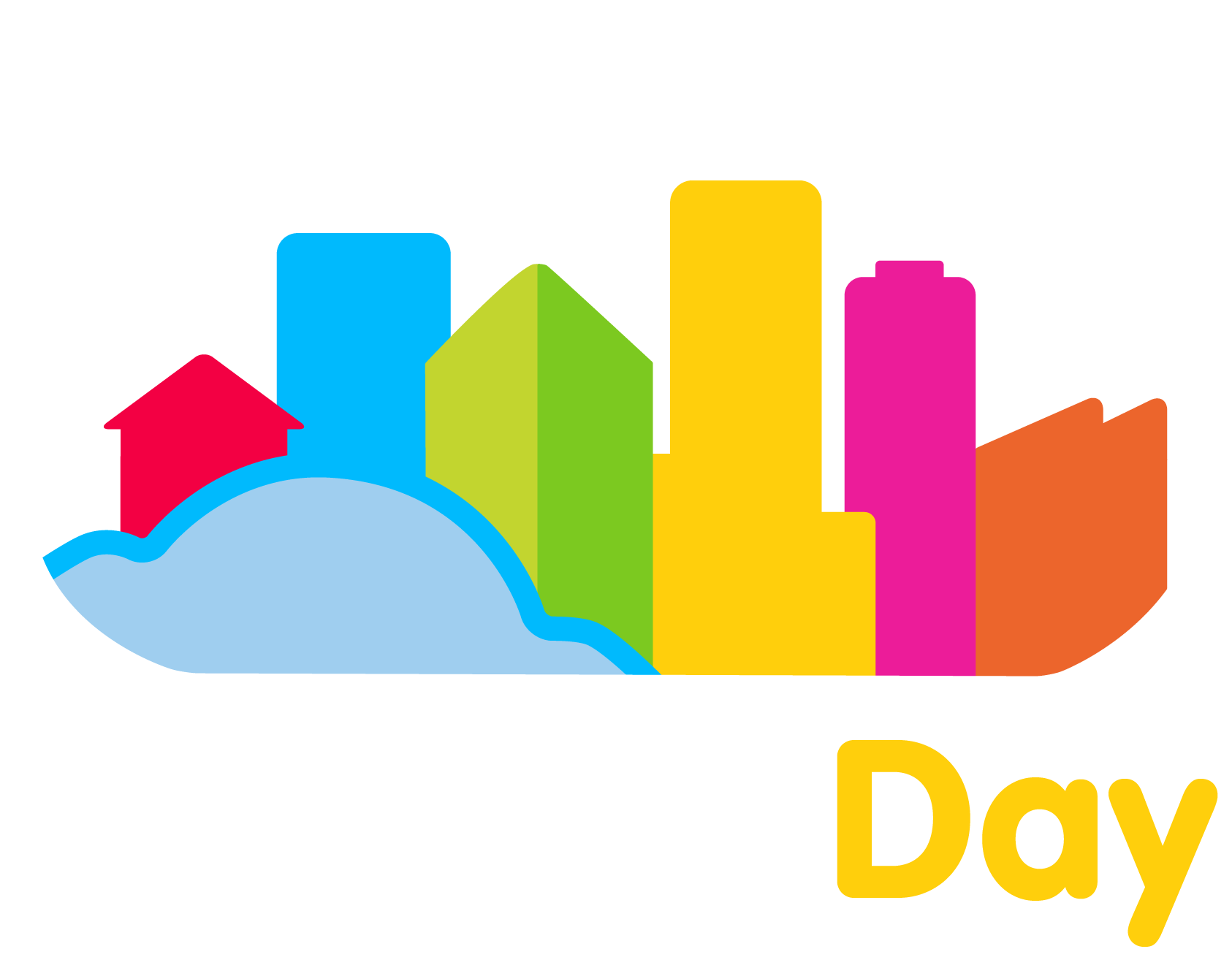As lockdown lifts, companies in Lambeth and Southwark can benefit by building Clean Air into business recovery plans. The Build Back Cleaner Air project from Global Action Plan and Guys & St Thomas’ Charity is helping the boroughs emerge safely and sustainably from the COVID-19 pandemic. This web resource provides locally based organisations with practical advice and guidance for getting back to business whilst improving local air quality for everyone. We will be adding to this resource over the coming months, so keep checking back for the latest solutions, initiatives and events.
COVID-19 has forced a national conversation about the importance of air quality, with scientists concerned that air pollution is causing or worsening health conditions like asthma and COPD, making people more vulnerable to coronavirus complications. Companies in the two boroughs now have a unique opportunity to forge positive relationships with their local community by bringing life back to the streets in a way that keeps pollution down. 78% of people in Southwark think businesses should do more to cut pollution and traffic after the lockdown so that neighbourhoods don’t go back to the way they were. Half of all Lambeth and Southwark residents said the air felt cleaner when lockdown measures were imposed, which gave people a once in a generation opportunity to experience the benefits of life without pollution. By working with the principles outlined below, businesses can be part of a local movement to build back cleaner air.
By thinking smart about return to work plans, businesses can:
- Get staff and customers back to your place of business - by promoting healthy and safe low-pollution journeys avoiding public transport
- Help customers access your goods and services safely - by offering zero-emission deliveries and environments to enjoy them
- Drive business continuity, staff retention, wellbeing and engagement - by supporting employees to work well remotely
- Support the national effort to fight coronavirus, particularly for disadvantaged inner-city communities – by doing your bit to keep the air we breathe as clean as possible
General guidance
A helpful ‘Air Quality Pack’ by Lambeth Council for businesses in Lambeth on the causes of air pollution and steps that companies can take to reduce it:
Companies in Lambeth can contact sustainability@lambeth.gov.uk if you are interested in having an air quality workshops for your business, or want to participate in ‘anti-idling’ events.
Opportunities
We have identified six categories of action on air pollution that are highly relevant to the recovery from COVID-19. Below is a collection of ideas and related links specifically to help local businesses build back cleaner air.
Homeworking has been vital to keep businesses running during the lockdown, with 6 in 10 employees nationwide saying they have been working from home at least some of the time. 86% of surveyed residents in Lambeth and Southwark would like to continue to work from home to some extent.
Flexible working includes the ability to work remotely (at home or another location such as a local shared office space) rather than a fixed office location only. It also includes offering and normalising staggered start times to ease people’s commutes and caring responsibilities. Remote working has the potential to create positive knock-on effects for local air pollution; with employees able to receive packages at home rather than getting personal deliveries to their workplace, employers can eventually prohibit personal deliveries to offices which represent up to 50% of incoming deliveries in some workplaces.
With social distancing on public transport set to remain in place for the months ahead, and a need to discourage increased private vehicle use to prevent gridlock and pollution, flexible working is a key tool for business continuity during the COVID-19 pandemic.
With shops and enterprises opening up for business again, getting staff to work safely is of utmost importance. Two thirds of Lambeth & Southwark residents would like to walk more. Given public demand and dramatically reduced capacity on public transport, active travel is a key opportunity for employers in the boroughs.
Support available:
Guidance for staff on walking or cycling routes to work which avoid the worst air pollution:
Borrow bikes for staff to use for their commute:
Secure cycle parking:
When asked what businesses should do to improve air quality 41% of residents in Lambeth and Southwark said they would like to see more cargo bikes used for delivering goods. In making this switch and others, such as working with neighbours to reduce, reschedule and consolidate deliveries, businesses can cut harmful pollution from light goods vehicles.
Support available:
Choose local suppliers who deliver with zero-emission vehicles:
Nationwide directory of zero/low emission suppliers
Minimise deliveries to your site or office by procurement teams and employees:
People are taking an increasing interest in clean air, with the majority thinking that it is now more important than ever. People are willing to play their part in the shift to clean air business practices. 83% of residents in Lambeth and Southwark would be happy (to some extent) to wait 3 days for all non-urgent parcels to be delivered and two-thirds would be happy (to some extent) to collect packages from a local town centre pick up.
Support available:
Use cargo bikes to transport goods to customers:
Use electric vans to transport goods to customers:
Promote bike maintenance services to help customers access you by bike:
Promote click and collect options to customers:
3/4s of Lambeth and Southwark residents said they noticed that air quality was better during lockdown. Streets, squares and green spaces have never been more popular to enable people to socialise and enjoy cafes and pubs whilst social distancing. This presents a huge opportunity for business to give customers an experience that embraces the great outdoors and makes it safer for customers to reach retail and eateries – especially those that previously relied on public transport. 93% of respondents in Lambeth would find pedestrianised city centres helpful in walking or cycling more, and businesses can help facilitate this change.
Support available
Monitor air quality in your area:
Influence improvements to how ‘street space’ is used:
Help improve local open spaces:
The lockdown has meant that around a quarter of the UK’s working population have just experienced homeworking for the first time – meaning that millions of employees worked in an entirely new setting. Meanwhile, the existing workspaces, from factories to offices, are undergoing significant changes to accommodate protective measures to reduce the risk of spreading COVID-19. Whilst distance between individuals and high cleanliness are hot topics, ventilation is also an important factor in reducing the spread of COVID-19. Furthermore, it can be surprisingly easy to cause a build-up of health-damaging levels of air pollution in settings we’re not accustomed to working in – like our homes.
Professor Alastair Lewis of York University (and Chair of Defra’s Air Quality Expert Group) recently presented to the All Party Parliamentary Group on Air Pollution to explain how air pollution has changed during the lockdown. He confirmed that air pollution has been lower due to the drop in traffic levels, but that this doesn’t mean that people’s exposure is necessarily lower, citing the specific example that someone now working at home from a kitchen table may be exposed to significantly more pollution if adequate ventilation isn’t used to remove particulate matter emitted from ovens and hobs while cooking.
The All Party Parliamentary Group on Air Pollution’s new Air Quality Strategy to Reduce Coronavirus Infection recommends an awareness campaign to help people reduce indoor air pollution. It also calls for the government to accelerate its planned ban on wet wood to heat homes and ban domestic stoves, highlighting the risks to health of these behaviours. Global Action Plan has produced a simple flyer that employers can share with staff to help people enjoy better air quality at home.
Air quality in commercial and manufacturing sites is just as important in avoiding employees being exposed to high levels of pollution, with a potentially wider range of pollutants in those premises than in the home.



